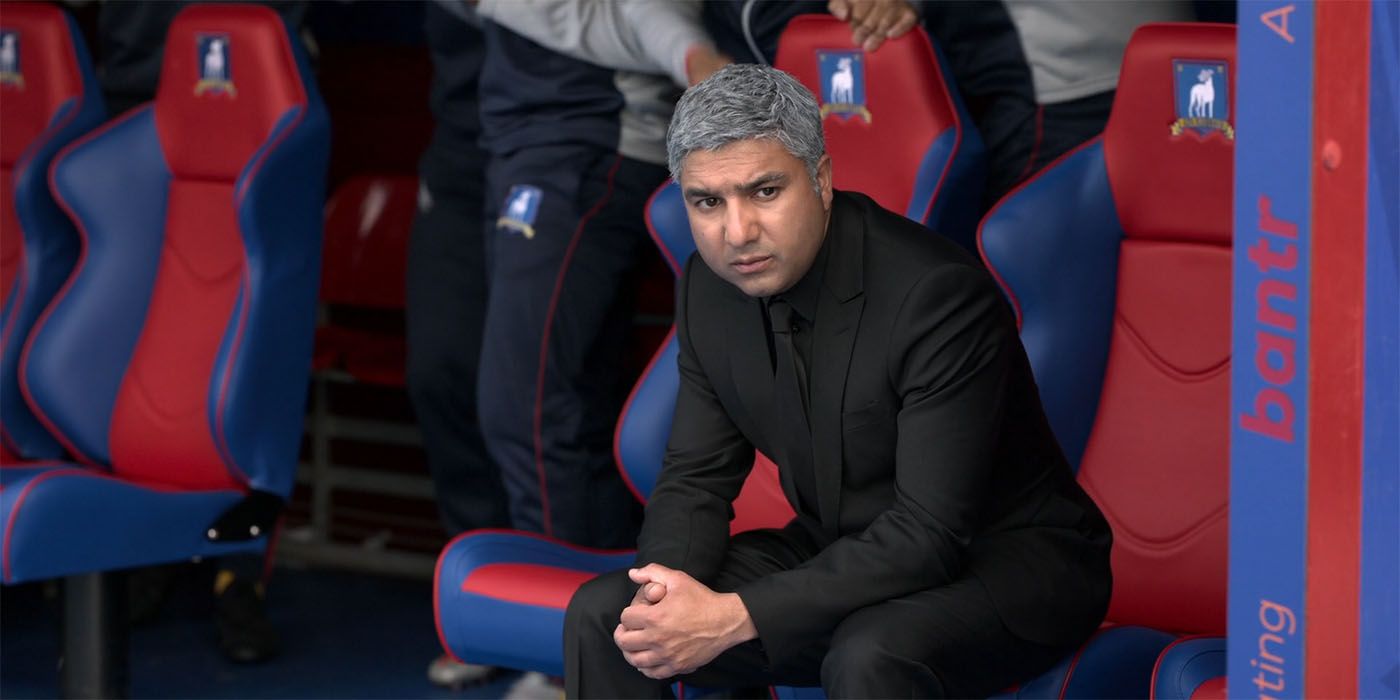Warning: Spoilers for Ted Lasso season 2.
Ted Lasso star Nick Mohammed gets why people would hate his character after the season 2 finale. Mohammed plays Nate Shelley in the Apple TV+ hit series, which focuses on the titular Ted (Jason Sudeikis) as an American college football coach who’s unexpectedly recruited to coach an English Premier League team despite having no experience with soccer.
Ted Lasso season 2 has brought about plenty of changes which continued in the season 2 finale. Titled “Inverting the Pyramid of Greatness,” the episode sees Roy (Brett Goldstein) and Keely (Juno Temple) make a big decision, and AFC Richmond, the show’s central soccer team, play in their most important match yet. But still, coming out of the episode, it’s likely Nate who will have viewers buzzing the most. The finale highlights how Nate, frustrated with his position as an assistant coach, lashes out vehemently at those around him. He also appears largely unapologetic for leaking sensitive personal information about Ted to the press. Plus, in a flash forward, it’s revealed that the character now works as a coach for Rupert (Anthony Head) and his new West Ham United team. That development is particularly telling, as Rupert has long been established as the chief antagonist of Ted Lasso.
Speaking with Collider after the Ted Lasso season 2 finale, Mohammed confessed that the reaction he received from fans about Nate’s shift in personality was initially overwhelming. But, he noted, it was ultimately a credit to the writing, the direction, and the performances of the cast that the story resonated as well as it did. He added that, while viewers are meant to feel hatred towards his character, he hoped that there is at least a better understanding of Nate now that the second installment of the series has come to a close. Mohammed’s quote is below:
“It was surreal and overwhelming, when it first started happening. It’s weird because Jason texted me literally this afternoon to check in that I was all right about the fan reaction. I was like, “Oh, God.” It means that we’re doing our job correctly. With the writing and the performance and the direction, we are meant to feel this about Nate. We’re meant to feel hate towards him. That’s correct. If fans are reacting that way, then it means that we’ve done our job in some small way. But it is weird because people are quite affronted, and rightly so, by some of the stuff that Nate has been doing. I absolutely don’t condone any of his actions. Hopefully, particularly off the back of Episode 12, when people see it and when he lays into Ted and explains how he’s been feeling, you can at least see why he’s feeling like that. Not to justify it still, but at least there’s a little bit of a reason as to why Nate has been behaving in this way with a series of micro-aggressions and this sense of abandonment and this toxic relationship he has with his dad and not really having anyone that he can really truly confide in and who gives him any sense of real worth. It’s a sad story for Nate, it really is.”
It has been interesting to watch Nate’s arc throughout season 2, as it serves as a microcosm of Ted Lasso as a whole. Early on in the sophomore installment, the character has a crisis of confidence. But, with the help of Keely and Rebecca (Hannah Waddingham), he learns to temporarily overcome his anxieties. But that specific personal victory wasn’t enough to overcome his underlying issues and his problems with the show’s titular coach. Viewers would catch glimpses of Nate’s anger and dissatisfaction, which clearly set the stage for his villainous turn in “Inverting the Pyramid of Greatness.”
Whether or not that fixes the issues which audiences and critics had with Ted Lasso’s second season is another matter. But with the finale having aired, there’s space to assess which storylines worked and which others failed to catch on. The series largely stepped away from its sports focus of season 1 to become more of a romantic dramedy, a change that hasn’t been positively received by all. However, the response to Nate’s actions makes clear that at least some of the storytelling resonated.
Source: Collider
About The Author

